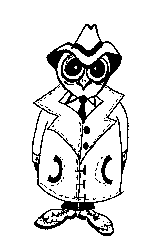The Online Tutor as Cross-Curricular Double Agent
by Patricia EricssonDakota State University
and Tim McGee
The College of New Jersey

Abstract
Tutors occupy a complex pedagogical space in which they are often asked to serve two masters: teacher and student. When the tutoring goes online, a new level of complexity is added to the web of power relationships.
Tutors who have been trained well will not readily abandon the institutional goal of student learning. But even well trained tutors can end up working against, rather than for, the goals of the teachers whenever the tutors and the teachers operate under substantially different epistemologies.
The advent of online tutoring has opened new avenues for research into peer tutoring in writing. Our interest in defining the role and determining the effectiveness of our online tutors led us to examine one seemingly proficient tutor and her practices.
Our findings were opposite our expectations, and they may pose a challenge to conventional wisdom regarding technology as an aid to the reform of writing pedagogy. What follows is the story of our research and findings.
This web was peer-reviewed by Jeff Galin and Joel English of the Kairos Editorial Board, and the graphics were produced by Brady Lynch and A. J. Ilchuk.
Contact Patricia Ericsson
Contact Tim McGee
Tim McGee is an Assistant Professor of English and Coordinator of the Rhetoric Program at the College of New Jersey. Previously he worked as Coordinator of the OWL at Dakota State and as Coordinator of the Writing Focus Group of Berkeley's Instructional Technology Program while obtaining his PhD in Rhetoric at U.C. Berkeley.
About Our External Links


